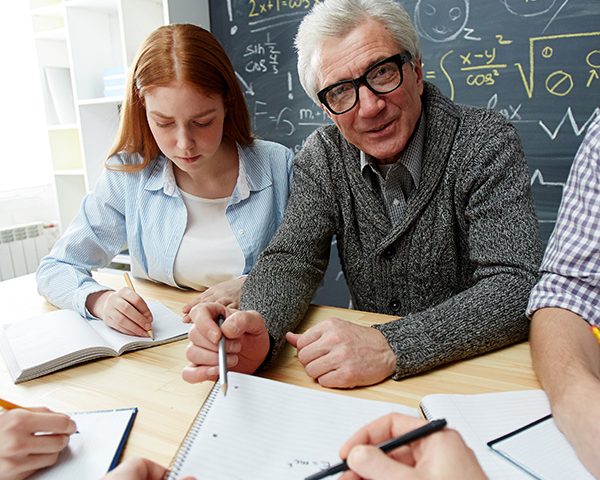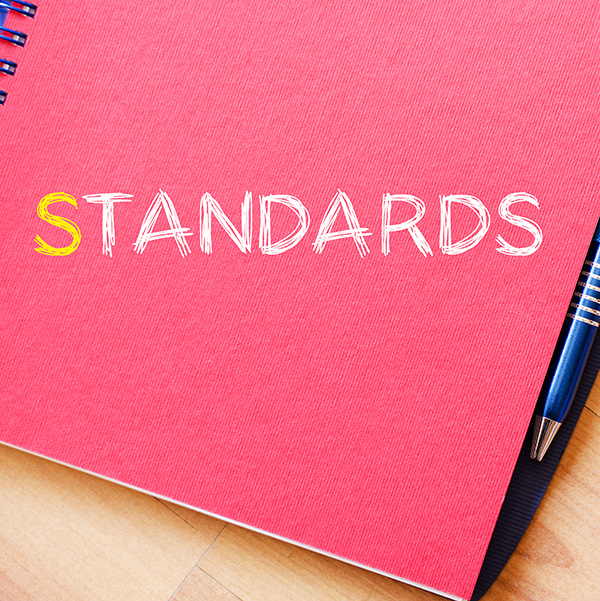Looking at Educational Improvement from a Lifelong Learning Perspective

SHOW YOURSELF! Video-selfies for feedback
August 5, 2019
Learning to teach starts with “learning to look”
September 18, 2019Looking at Educational Improvement from a Lifelong Learning Perspective

Redefining The Role of Teacher Education
A decline of a country’s test scores in international comparative tests (PISA, TIMSS) usually initiates a nationwide discussion that eventually results in questioning the quality of teacher education and teacher educators. To explain the lower achievement of pupils on these tests, a couple of things come under attack, firstly, the curriculum and the school system, secondly the quality of teachers and their instructional practice, and finally teacher education and the quality of teacher educators.
Typically, to tackle this negative trend, policy makers tend to follow a similar line of reasoning, addressing each of these components of the educational system. They tend to see these components as related but separated variables. They, first, set higher standards for the curriculum and the functioning of schools. Secondly, courses for in-service training are developed and/or school counselling programmes are set up to adjust teachers’ instructional practices. And last but not least, teacher education curricula need to comply to the new standards and measures are taken to raise the overall quality and the output of teacher education (e.g. entrance exams, new curricula requirements, the academisation of teacher education, …).
At the core of this approach is the idea that (student) teacher development is curriculum driven. The focus lies on raising (academic) standards and changing courses/subjects. This implies that changing curricula will lead to better teachers and a better performing educational system.
Research on the development of teaching expertise, however, shows that professional development is far more practice than curriculum driven. To become an expert teacher, you need many years of professional experience and learning (see e.g. Bereiter and Scardamalia, 1993). Nowadays teachers as well as teacher educators have to adapt flexibly and adequately to rapidly changing (educational) contexts. They have to learn to function in a more open, continuously developing and a more complex educational system as well as society. Rather than making adjustments to standards and curricula within the current system, we need a more fundamental shift from curriculum driven to a (teacher) learner driven system.
Learning for teachers typically takes place in a specific school context in interaction with pupils and colleagues. It is by deliberately engaging in educational practice that (student) teachers continuously finetune their competences. One does not become an expert by just adding more years in practice, one becomes an expert by consciously reflecting on one’s own practice, alone and with others. By pausing, reflecting and researching their own practice teachers become more competent. And by becoming more competent teachers, they create a more powerful learning environment for pupils. In a knowledge-based society where you want all people to never stop learning, you also need teachers that embrace lifelong learning.
Consequently, changing school or teacher education standards or a curriculum in an isolated and separated way will hardly make a difference towards educational improvement. What is needed is a whole system approach that acknowledges the structural interrelatedness of the different components of the educational system and that takes the processes constituting the lifelong learning of teachers as an essential starting point for educational improvement.
Taking a lifelong learning perspective on teachers’ professional development and acknowledging the role of learning in and through practice necessarily blurs the boundaries between initial teacher education and work in school. If you want to see a clear and powerful transfer of knowledge in practice, the learning environment of teachers needs to be embedded in that practice. Learning takes places there where you feel a need to learn. No better place for the (student) teacher to learn than in their (future) workplace.
 It calls for a more deliberate and integrated approach that bridges the gap between theory and practice, that crosses the boundaries of teacher education institutions and schools.
It calls for a more deliberate and integrated approach that bridges the gap between theory and practice, that crosses the boundaries of teacher education institutions and schools.
From such a perspective school practices and their curricula constitute the main learning environment for (student) teachers as well as pupils. Research and teaching activities developed in teacher education institutions in close collaboration with schools result in powerful insights that can be directly implemented in the curricula and practices of both.
Actual educational improvement is not the result of a linear line of reasoning from setting new standards over curriculum development to changes in teacher education. Effective educational improvement results from all players in the field of education closely working, learning and inter-acting together in a continuous process of lifelong learning. To foster and support these collaborative processes asks for more powerful models and approaches. These models need to respect the collaboration between teacher education and schools, teacher educators’ and teachers’ task perception and roles, the interdependent role of the different institutions that support teachers and schools and organize in-service training. To the extent that we will succeed in developing these collaborative models we will be able to better tackle the educational challenges we are and will be confronted with.
References
Bereiter, C. & Scardamalia, M. (1993). Surpassing ourselves: An inquiry into the nature and implication of expertise. Chicago: Open Court



 Peter Op ’t Eynde is head of a teacher and school consultancy service supporting 450 primary and secondary catholic schools in Flanders. He has also been part of several visitation commissions (as chair or member) that evaluated teacher education institutes and programs in Flanders and the Netherlands.
Peter Op ’t Eynde is head of a teacher and school consultancy service supporting 450 primary and secondary catholic schools in Flanders. He has also been part of several visitation commissions (as chair or member) that evaluated teacher education institutes and programs in Flanders and the Netherlands. Ann Martin is head of the Teacher Education Department at Odisee University College. The Education Department is spread out over four campuses (Aalst, Brussels, Dilbeek, Sint-Niklaas), has over 2500 students attending each year, as well as 250 teacher educators responsible for igniting a love of learning in all students. She believes that knowledge is power, but enthusiasm pulls the switch.
Ann Martin is head of the Teacher Education Department at Odisee University College. The Education Department is spread out over four campuses (Aalst, Brussels, Dilbeek, Sint-Niklaas), has over 2500 students attending each year, as well as 250 teacher educators responsible for igniting a love of learning in all students. She believes that knowledge is power, but enthusiasm pulls the switch.

